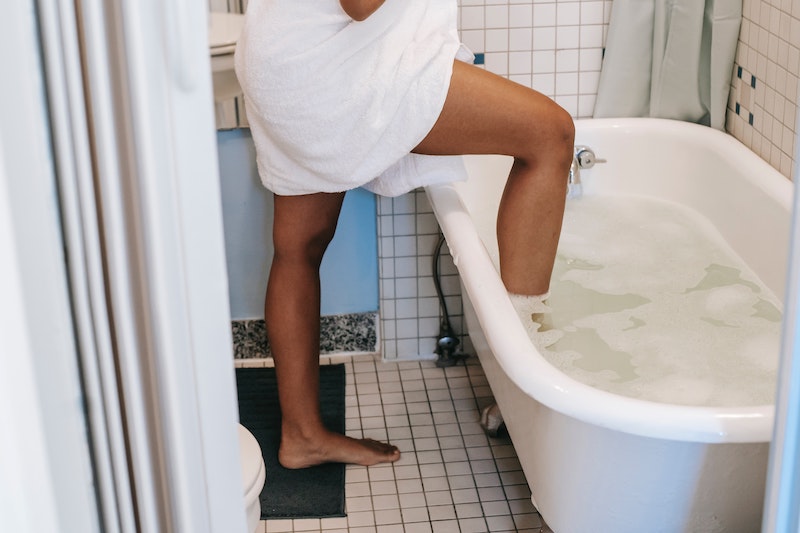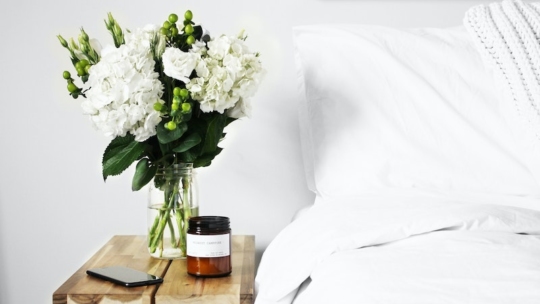Nothing beats waking up and feeling well-rested. However, there are a lot of times where you’ll wake up, and instead of feeling refreshed, you may feel groggy and tired. This is known as sleep inertia.
For some, a lack of sleep means waking up feeling sick and others can often find falling asleep a lot more difficult than others.
So how do you get a good night’s sleep?
What helps your body stay asleep?
If you’re looking to improve your quality of sleep, then keep on reading.

The health benefits of a good night’s sleep
Sleep doesn’t just re-energize your body for the following day, it has many health benefits that can lead to a long and happy life on the planet.
Quality sleep is needed in order to wake up feeling rejuvenated and ready to make the most of the day ahead. 1 in 3 adults don’t get enough sleep and that can be detrimental to your health and wellbeing.
So what benefits to your health can come from good sleep habits?
Better attention and concentration
When you’re attentive to your surroundings, it can protect you from any dangers that may be present. A lack of sleep will directly impact your focus and concentration levels, which will only get worse throughout the day.
Any sleep issues you may have will have a significant impact on how productive you are the following day. This could end up having a knock-on effect on your social life, how efficient you are in your job, and of course, your wellbeing.
Helps maintain your weight
Regular exercise is important to maintain your weight but sleep can also help with that.
Not getting enough sleep can make it difficult to control your appetite. When you’re in sleep debt, your body will want to replace any energy you don’t have, with food.
This will also likely be unhealthier foods such as meals or snacks that are high in sugar. Caffeine can also become a crutch that people rely on when they have sleep deprivation.
Improves the immune system
Your healthcare provider or family doctor will likely tell you that sleep can help improve your immune system.
A good immune system will give you the quality of life you deserve, rather than always feeling run down and ill.
A poor immune system makes you more at risk of heart disease, as well as other problems that could shorten your lifespan if not taken seriously.
Reduces the risk of health problems and sleep disorders
Sleep disorders are often caused by not getting enough sleep in the first place.
When you have poor sleep, it can often heighten levels of stress and anxiety. With this being closely linked to depression, this mental state then impacts any chance of having a good night’s sleep.
If you introduce the right healthy habits with your sleep patterns early on, then you can reduce the risk of many health problems, including sleep disorders.
Six tips to better sleep
If you’re the type of person to sacrifice sleep for other things or you are finding it difficult to wind down in those hours before bedtime, then these tips will be beneficial to you.
Everyone can make improvements to their sleep routine in order to get more hours of sleep and to better their sleep cycle. These tips should be helpful when you’re looking at how to sleep better.
1. Get your body temperature right with a warm bath or shower
Whether it’s surprising or not to you, body temperature can play a key part in helping you sleep better and to fall asleep quicker.
Taking a hot bath or shower can help get your body temperature to the right point where your body becomes more relaxed. It’s a relaxation exercise that you can implement into your bedtime routine every night if you find it useful to do so.
Even if you don’t do this every night, doing it on a regular basis will help your body learn to relax and realize that this is an activity that helps get you ready for sleep.

2. Create a sleep-inducing bedroom
Just like a warm bath, your bedroom temperature is one of the many contributions that make up a sleep-inducing bedroom.
Make the bedroom comfortable by introducing gentle music or soft music that can help your mind unwind and decompress from the day’s events.
A bedroom that makes you feel sleepy is a relaxation response that you want when you step foot in the bedroom. If your room isn’t doing that, then it’s useful to make some necessary changes.
3. Remove all blue light and electronic devices before bedtime
As much as it can be tempting to scroll through your digital devices before bed, it’s counter-productive. Blue light can have a negative impact on your efforts to fall asleep quickly. Blue light waves will keep you alert and awake when your mind needs to be relaxed and ready for rest.
An hour before bed, make sure you remove all electronic devices in order to help fall asleep and have a restful night. Often enough, your electronic devices are responsible for waking you up in the night or disturbing the amount of deep sleep you get.
4. For better sleep, time your exercise right
Exercise can be a great way of helping relax your body and to burn all of that extra energy that you might have left over from the day. You don’t want to do physical activity that’s going to leave you exhausted, but it should be something that
Exercise is not only good for physical health but it’s also great for your mental health too.
5. Correct your body clock by keeping to a schedule
You should be getting between 7-8 hours of sleep per night ideally, however that’s not always the case. When it comes to sleep health, it’s good to pay attention to your sleep stages. Correcting your body clock by going to bed at the same time and waking up at the same time will help you fall asleep quicker.
Scheduling in your sleep can also be useful and it might be worth getting an alarm clock so that you can better control when you wake up, rather than hitting that snooze button several times in the morning.
6. Foster pro-sleeping habits during the day
It’s good to focus on what you’re doing in the day and not just in those last few hours before bedtime.
If you’re a morning person, try to get up early so that you can make the most out of the day. That way, you can burn through all that energy more efficiently. In daily life, you might want to reduce the amount of caffeine that you have and improve the production of melatonin by taking supplements.
This is just a starting point to get better sleep but the few changes that you make to your lifestyle and habits can make a big difference in your quality of sleep.
How do you get good night’s deep sleep?
Struggling to get enough of that sleep stage known as REM sleep? If you’re not having any luck with getting a good night of deep sleep, then the following could be helpful.
Invest in your sleep environment
As it’s been mentioned, creating the right bedroom environment is important and so it’s good to invest in your sleep by purchasing sleep products. From weighted blankets to the perfect pillow, it all helps to relax your body and get you ready for sleep.
If you suffer from hot flashes then the right sheets and mattress toppers are worth thinking about.
Identify or rule out any sleep disorders
Sleep disorders may be the reason why you’re not falling asleep quickly or that you struggle to reach that REM stage of sleep.
You may want to approach your doctor for advice and to further diagnose you with any sleep disorder that could be treated.
Hopefully, this has helped you answer the question of how to get ready for bed so that you can enjoy a good night’s sleep. For the benefit of your help, consider how you could change your habits to improve your nighttime routine.

